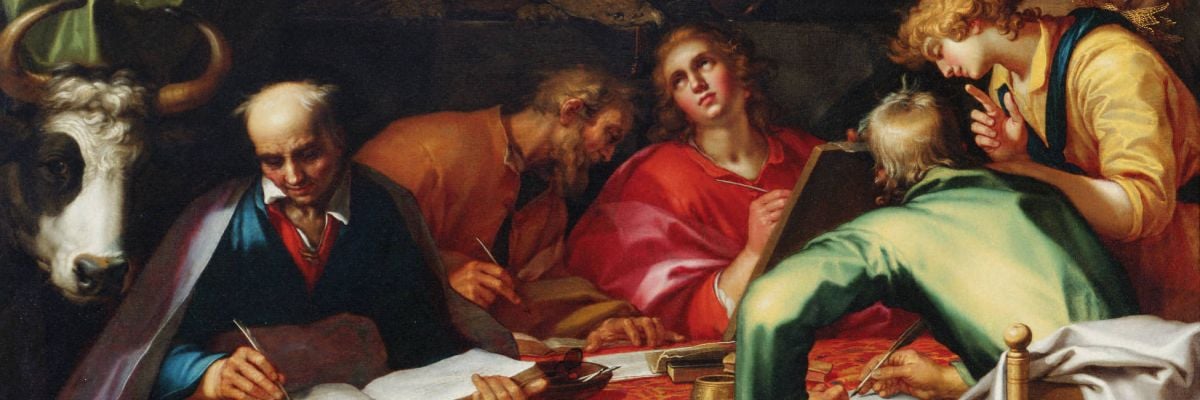
Question:
Answer:
The Gospels often present variations on the same events. That is, a difference in details does not necessarily entail a contradiction, but rather conveys an additional perspective.
In addition, sometimes there’s a variation on the words attributed to Jesus. For example, Matthew favors “kingdom of heaven,” whereas Mark and Luke, and to a lesser extent, John, make consistent reference to “kingdom of God.”
A contradiction?
No, it’s a variation on the same theme by the respective of authors, with Matthew opting for “kingdom of heaven” for his Jewish audience, “since,” as Scripture scholar Curtis Mitch notes, “Jewish tradition often used the word ‘heaven’ as a metonym, i.e., an indirect reference to God by means of something to which he is closely related (for other examples, see 1 Mc 4:25 and Lk 15:18).”
Mitch is the annotator for The Ignatius Catholic Study Bible.
Regarding other events, as Mitch provides, one Gospel writer can provide a fuller account of an event, as in the case of Matthew’s presentation on the desire of the mother of the sons of Zebedee to have her sons seated at Jesus’ right hand and left hand in his kingdom.
Further, there are issues of chronology, such as Matthew, Mark and Luke putting Jesus’ cleansing of the Temple at the beginning of the first Holy Week and John putting it at the beginning. This need not be construed as a chronological contradiction, Mitch notes, but rather as a point of different emphasis by the respective Gospel writers.
For a deeper treatment on this issue, see Mitch’s excellent article “What to make of ‘contradictions’ in the New Testament,” and our own presentation on the same topic: “How to Resolve Alleged Gospel Contradictions.”



